Germany and beer are almost synonymous.
For centuries, Germany has been the holy grail for beer enthusiasts, offering brews that reflect the country’s deep history and diverse culture. But with over 1,500 breweries and countless styles to explore, how do you choose the best beers to try in Germany?
This guide dives headfirst into Germany’s brewing heritage, spotlighting the most iconic beers, their unique flavors, and the traditions that make them legendary.
A Tradition Brewed to Perfection
To understand why Germany is celebrated for its beer, you must start with its backbone: the Reinheitsgebot, or German Beer Purity Law. Enacted in 1516, this law dictated that beer could only be made using three ingredients—water, hops, and barley (yeast was added to the list later, once its role in fermentation was understood).
While this might sound restrictive, it set a standard of quality and consistency that remains unmatched.
This commitment to quality birthed a diversity of beer styles that range from the crisp pilsners of the north to the full-bodied doppelbocks of Bavaria.
Regional Pride and Diversity
Germany’s beer landscape is as varied as its geography. Each region takes pride in its local brews, crafted to complement the climate, cuisine, and culture of the area.
In Cologne, the light and refreshing Kölsch reigns supreme, served in tall, slender. Travel a few hours west to Düsseldorf, and you’ll find Altbier, a darker, malt-forward ale that’s equally revered by locals. Meanwhile, Bavaria stands as the beating heart of German beer culture, home to wheat beers, lagers, and iconic breweries like Augustiner and Paulaner.
The Global Reach of German Beer
Beyond its borders, Germany’s beers have inspired generations of brewers. The precision of a pilsner, the charm of a hefeweizen, and the decadence of a doppelbock are emulated worldwide. Yet, no matter how many craft breweries attempt to recreate these flavors, German beers remain unparalleled—steeped in the unique terroir of their homeland.
Let’s deeper into the beers that define Germany’s brewing excellence, uncovering what makes each one special and why they’re worth your attention.
The Top 10 Beer To Try In Germany
1. Augustiner Helles
Flavor Profile:
Smooth, balanced, and incredibly drinkable, Augustiner Helles is a lager that sets the standard for the style. It delivers a subtle malt sweetness that’s perfectly offset by a clean, crisp finish. The result? A beer that feels light yet full of flavor—ideal for warm afternoons in a beer garden.
What Makes It Special:
Augustiner Helles is brewed by Munich’s oldest independent brewery, Augustiner-Bräu, which was established in 1328. Despite its historic roots, the brewery has resisted the urge to commercialize heavily, maintaining a traditional approach that prioritizes quality over quantity.
Cost:
- Supermarkets: €0.80-1.00 per bottle
- Bars: €3-4 per serving
Augustiner-Bräu is one of the few breweries in Munich that still uses wooden barrels for its beer, lending a unique character to its flagship Helles.
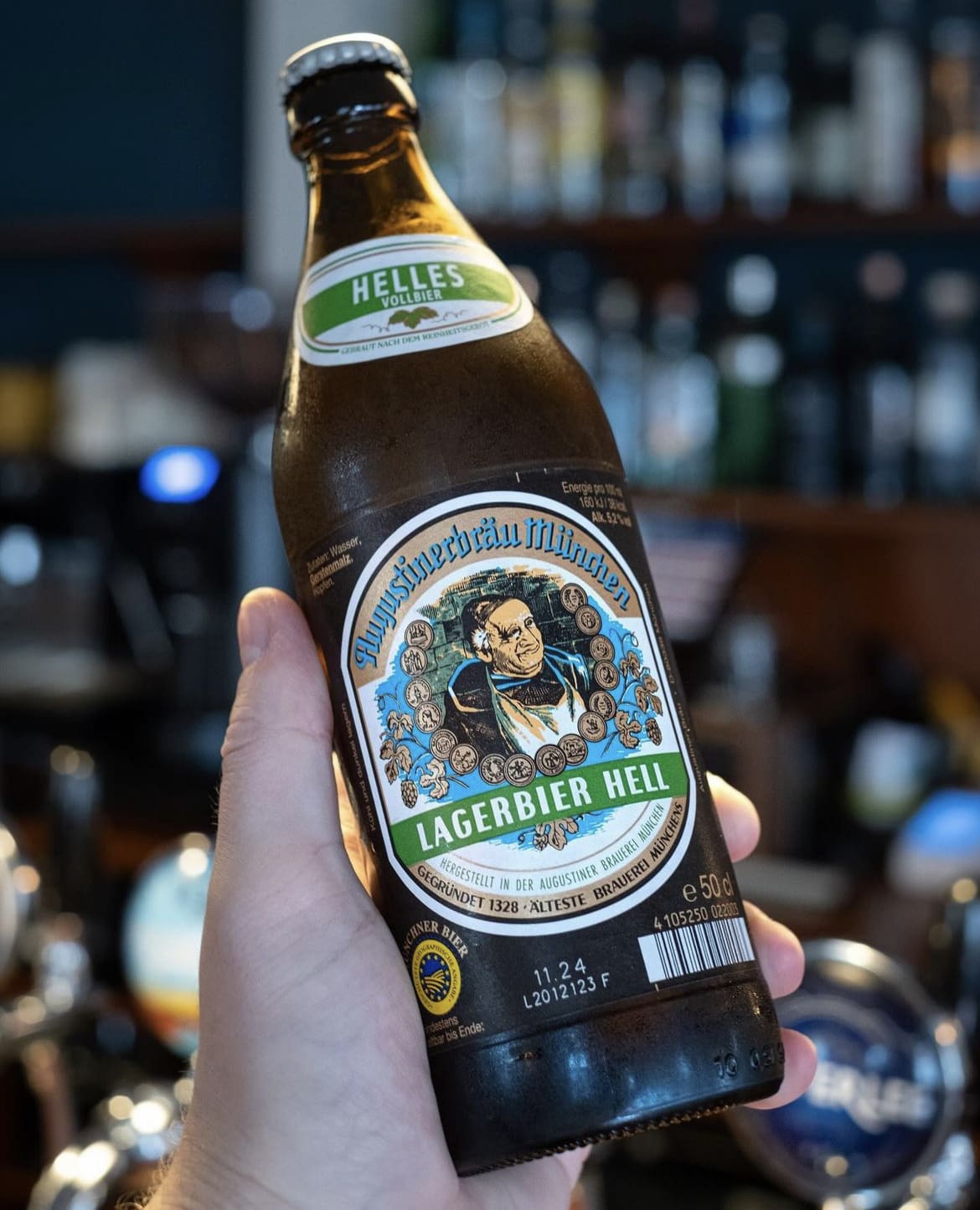
2. Paulaner Hefe-Weißbier
Flavor Profile:
A quintessential wheat beer, Paulaner Hefe-Weißbier bursts with the classic flavors of banana and clove. Its cloudy appearance, creamy mouthfeel, and slightly tart finish make it a refreshing choice, especially on a hot day.
What Makes It Special:
Brewed by Paulaner, a brewery founded by monks in 1634, this beer carries centuries of tradition. The monks originally crafted it as “liquid bread” to sustain themselves during fasting periods, and the beer’s hearty profile is a nod to those origins.
Cost:
- Supermarkets: €0.90-1.10 per bottle
- Bars: €3-5 per serving
Paulaner is one of the six breweries officially allowed to serve beer at Munich’s Oktoberfest, cementing its status as a Bavarian icon.
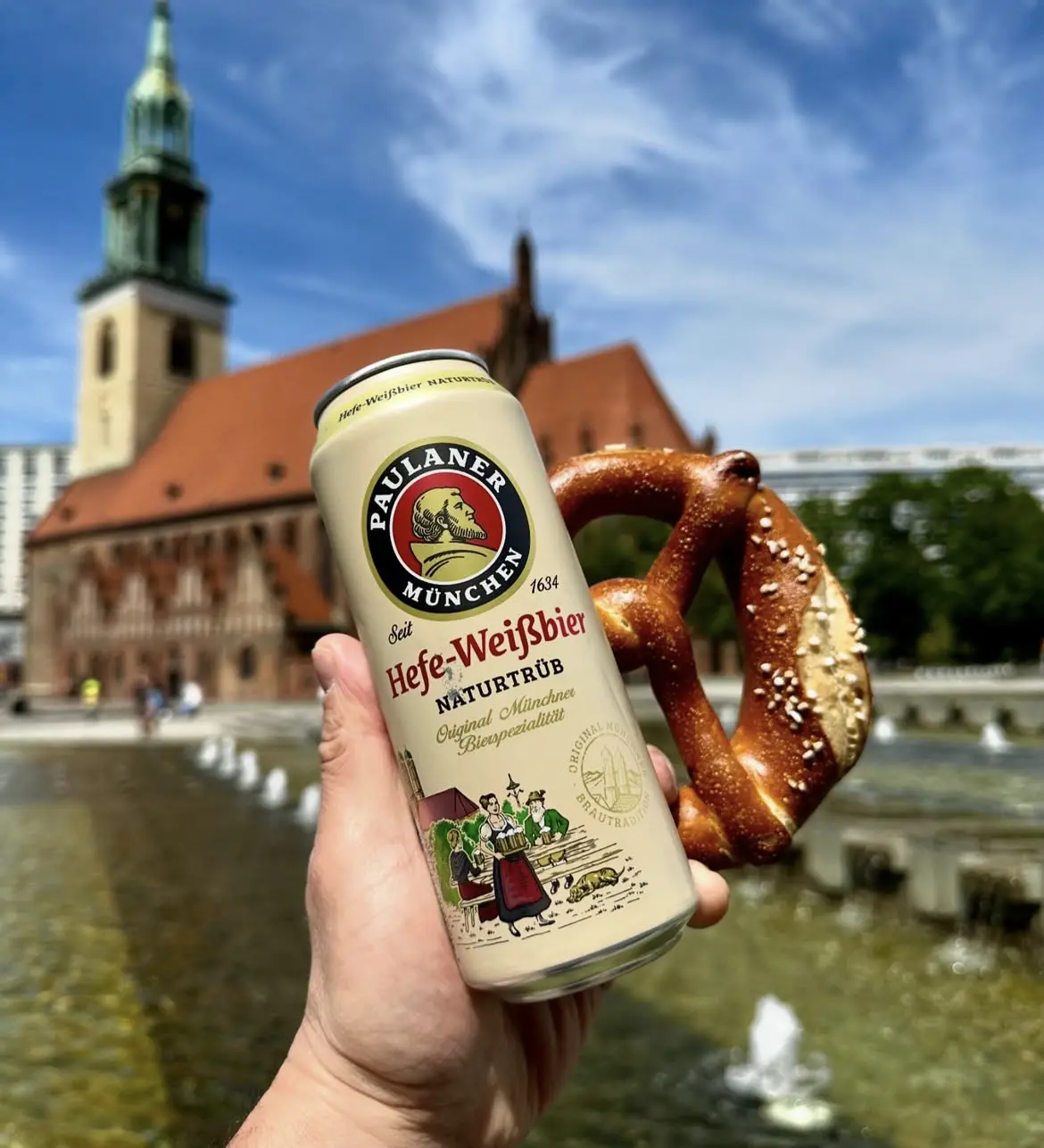
3. Krombacher Pils
Flavor Profile:
Crisp and hoppy with a slightly bitter finish, Krombacher Pils is a textbook example of a German pilsner. Its bright golden color and effervescent carbonation make it as visually appealing as it is refreshing.
What Makes It Special:
Hailing from Kreuztal in North Rhine-Westphalia, Krombacher is Germany’s best-selling beer brand. Its widespread popularity is a testament to the universal appeal of its clean, well-balanced flavor.
Cost:
- Supermarkets: €0.70-0.90 per bottle
- Bars: €2.50-3.50 per serving
Krombacher’s success lies in its water source—soft, mineral-rich spring water from the Siegerland region, which the brewery credits for its beer’s distinct taste.
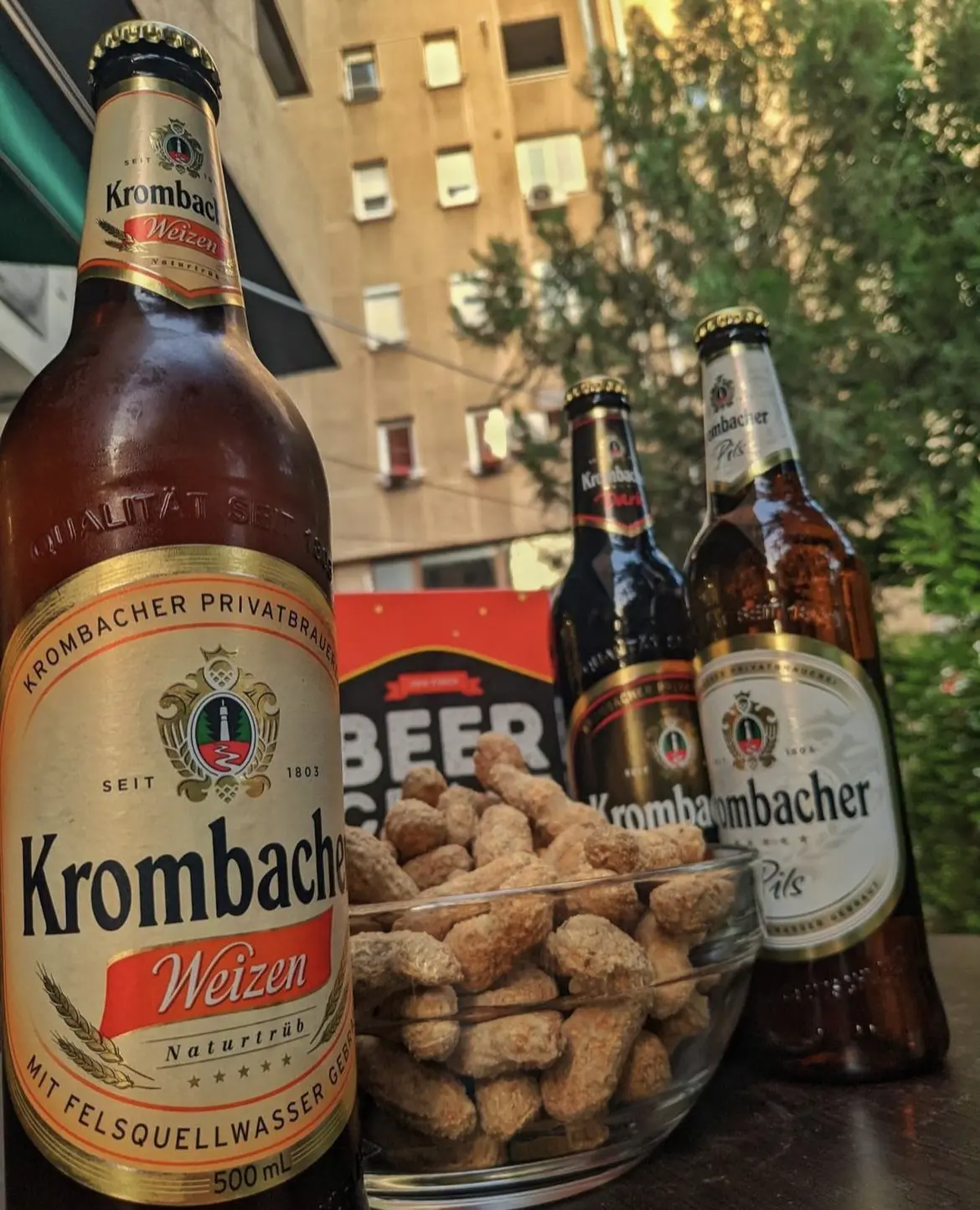
4. Erdinger Weissbier
Flavor Profile:
Erdinger Weissbier is the epitome of smoothness. This wheat beer has a harmonious blend of light malty sweetness and subtle citrus notes, with just a hint of spice. The full-bodied mouthfeel makes it satisfying without being heavy, appealing to both newcomers and seasoned wheat beer fans.
What Makes It Special:
Founded in 1886, Erdinger is one of Germany’s most beloved breweries. Known for its dedication to crafting premium wheat beers, Erdinger Weissbier has become a global ambassador for the style. The brewery’s meticulous approach to brewing has helped it maintain its status as a household name in Germany and beyond.
Cost:
- Supermarkets: €0.90-1.10 per bottle
- Bars: €3-4.50 per serving
Erdinger Weissbier is a favorite among athletes for its non-alcoholic version, which is marketed as a refreshing post-workout drink rich in vitamins and minerals.
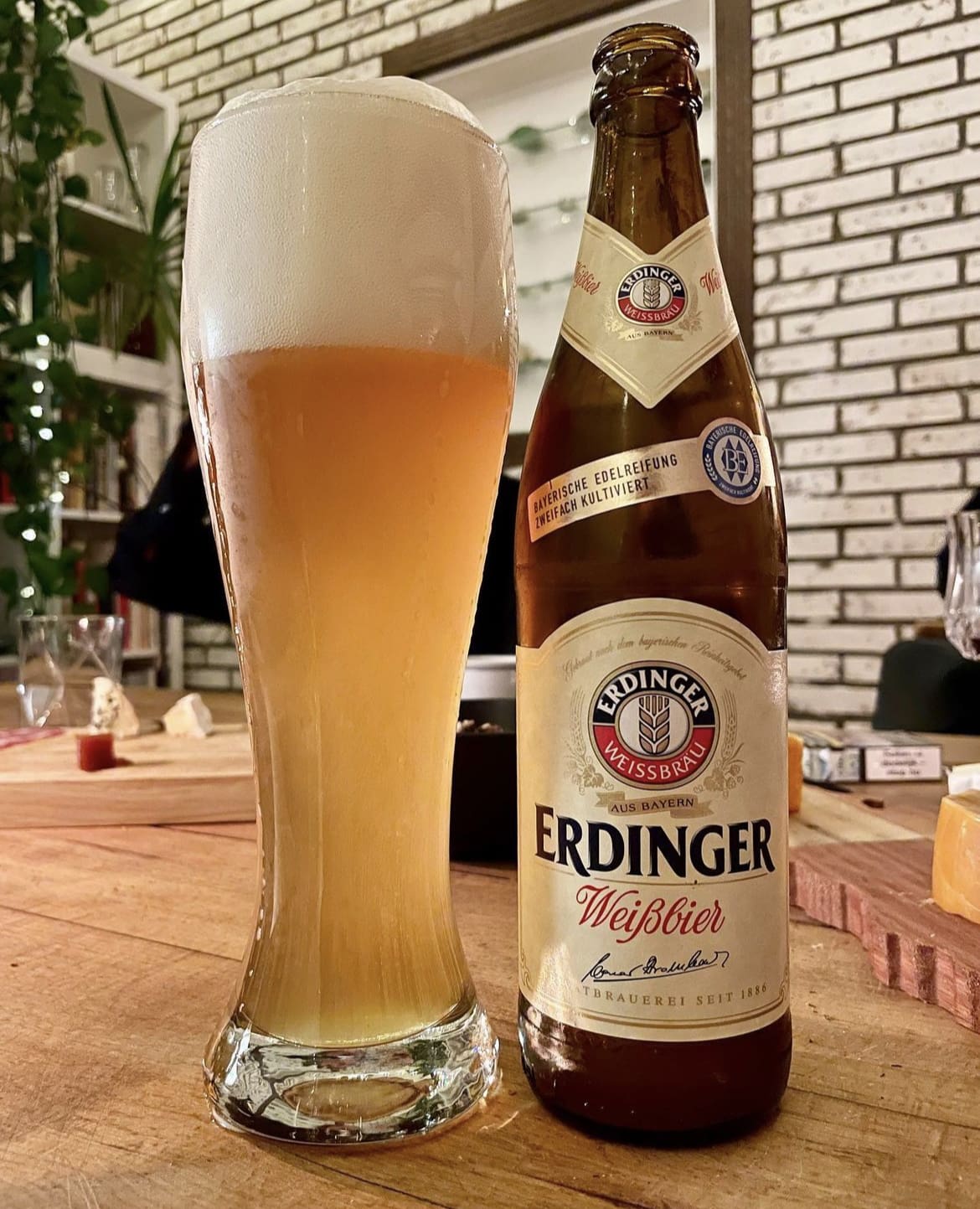
5. Weihenstephaner Hefeweissbier
Flavor Profile:
This Bavarian wheat beer is a classic with bold banana and clove notes, a creamy texture, and a hint of tanginess. Its refreshing yet complex profile has earned it a place among the most highly regarded wheat beers in the world.
What Makes It Special:
Weihenstephan Brewery, founded in 1040, is recognized as the oldest continuously operating brewery on Earth. Located in Freising, Bavaria, it combines nearly 1,000 years of brewing tradition with cutting-edge techniques to produce beers that remain relevant and revered.
Cost:
- Supermarkets: €1.00-1.20 per bottle
- Bars: €3.50-5 per serving
Weihenstephan Brewery operates alongside a brewing science research center, making it a hub for both tradition and innovation.
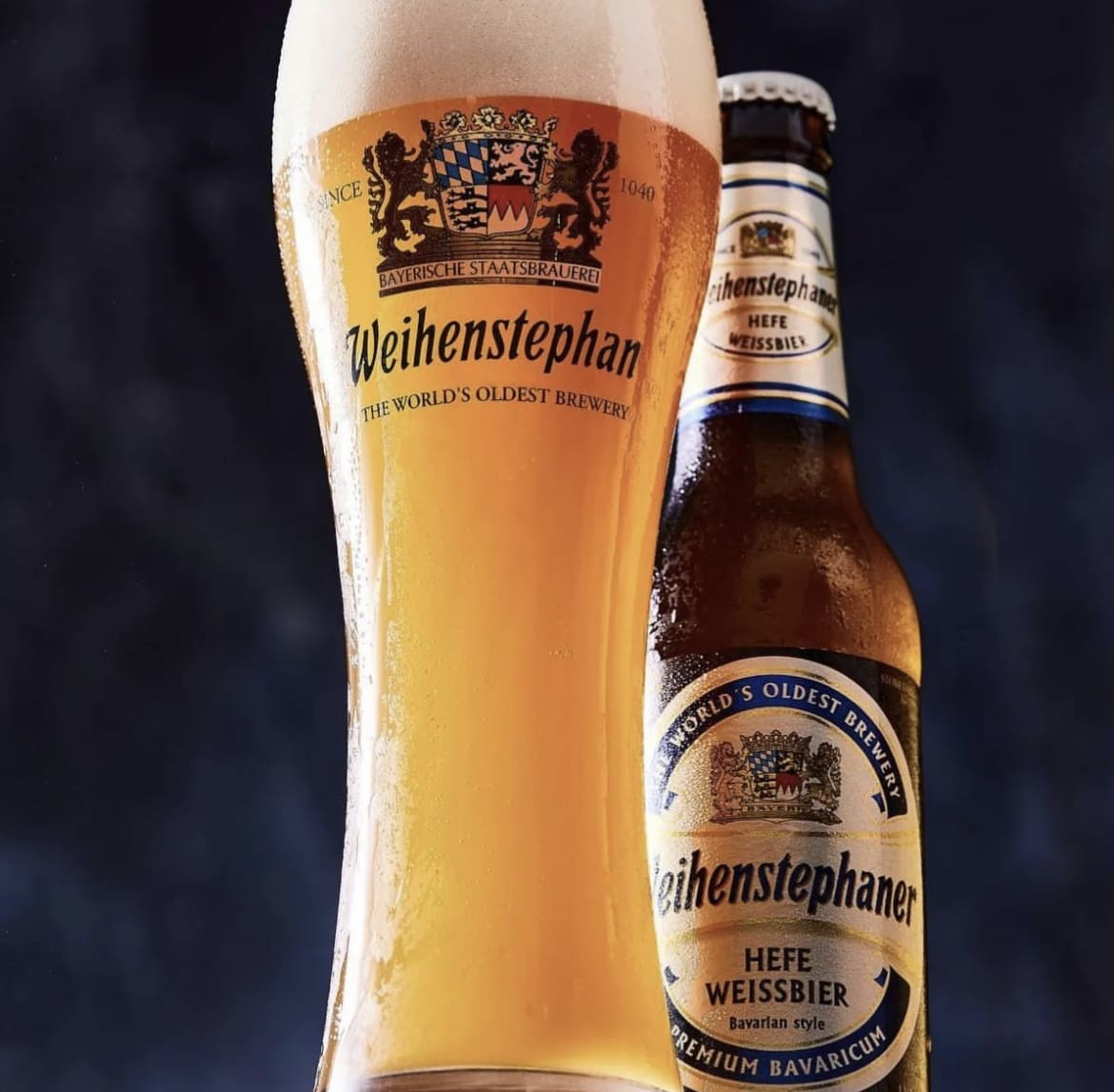
Read Next:
- The Best Christmas Markets In Frankfurt: The Wildest Guide
- The Wildest Guide To The Best Christmas Markets in Cologne
- The Best Places To Visit In Europe
6. Schöfferhofer Hefeweizen
Flavor Profile:
Schöfferhofer Hefeweizen stands out for its lighter, fruitier approach to wheat beer. It combines classic wheat beer characteristics with bright citrus notes and a touch of spice, resulting in a refreshing, easy-drinking brew.
What Makes It Special:
Schöfferhofer has taken wheat beer to a new level of accessibility. Its signature grapefruit version—Schöfferhofer Grapefruit—was the world’s first wheat beer and fruit juice blend, setting a trend for flavored beers that continues to thrive.
“Schöfferhofer isn’t just a beer—it’s a fun, flavorful twist on tradition,” says Julia Klein, a bartender in Berlin. “It’s perfect for summer afternoons or anyone just starting their wheat beer journey.”
Cost:
- Supermarkets: €0.80-1.00 per bottle
- Bars: €3-4 per serving
Schöfferhofer’s name pays homage to German poet Johann Peter Hebel, who lived in Frankfurt’s Schöfferhof district—a nod to the brewery’s literary and cultural roots.
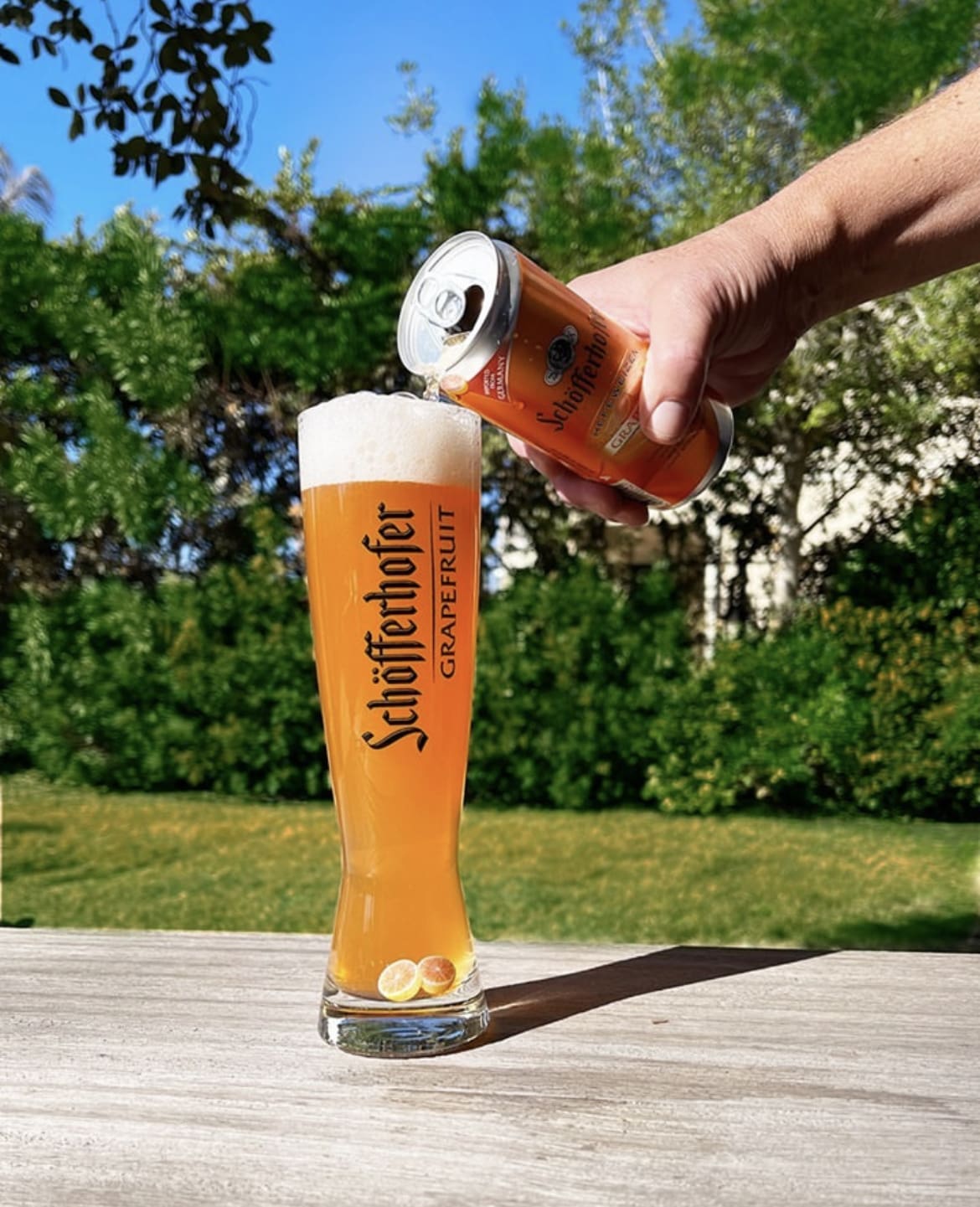
7. Bitburger Premium Pils: A National Favorite
Flavor Profile:
Bitburger Premium Pils is a crisp and clean pilsner that delivers a hoppy aroma and a pleasantly bitter finish. Its light, effervescent body makes it a refreshing choice, whether paired with food or enjoyed on its own.
What Makes It Special:
Known for its iconic slogan, “Bitte ein Bit” (“A Bit, please”), Bitburger has been a household name in Germany for decades. The brewery, located in the Eifel region, has perfected the art of pilsner brewing, creating a beer that’s as dependable as it is delicious.
“Bitburger is the kind of beer that brings people together—it’s a staple at any gathering,” says Andreas Weber, a brewery tour guide.
Cost:
- Supermarkets: €0.70-0.90 per bottle
- Bars: €2.50-3.50 per serving
Bitburger has been the official beer partner of the German Football Association, making it a go-to choice for fans celebrating a big match.
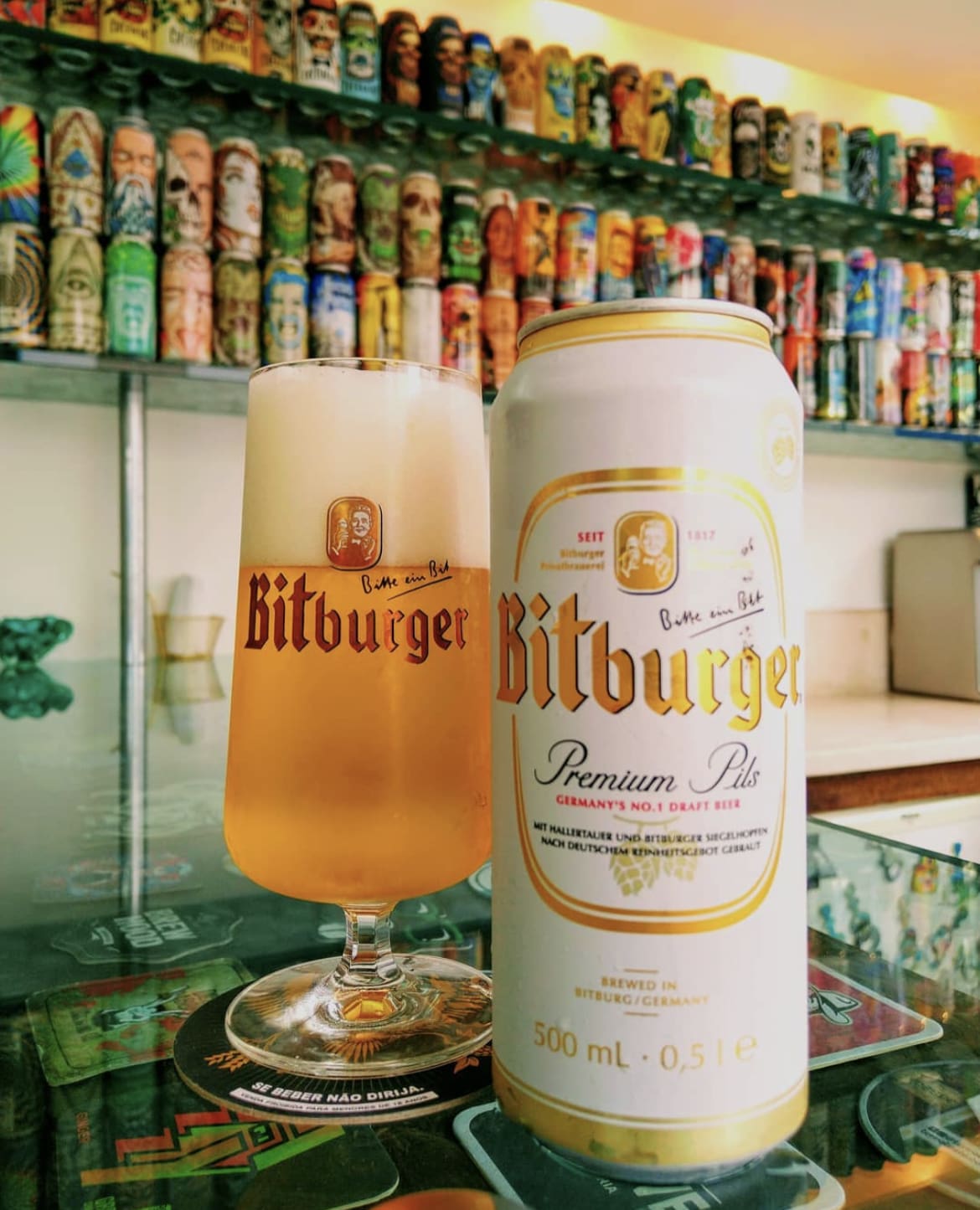
8. Ayinger Celebrator Doppelbock
Flavor Profile:
Ayinger Celebrator Doppelbock is a rich, malty beer with layers of caramel, chocolate, and dark fruit. Despite its intensity, the beer is remarkably smooth, offering a luxurious drinking experience that feels almost dessert-like.
What Makes It Special:
Brewed in the heart of Bavaria, Ayinger Celebrator has been consistently ranked among the best doppelbocks in the world. Its depth of flavor and meticulous craftsmanship have made it a benchmark for the style.
Cost:
- Supermarkets: €1.50-2.00 per bottle
- Bars: €4-6 per serving
Each bottle of Ayinger Celebrator comes with a miniature plastic goat, a nod to the beer’s connection to bock, which means “goat” in German.
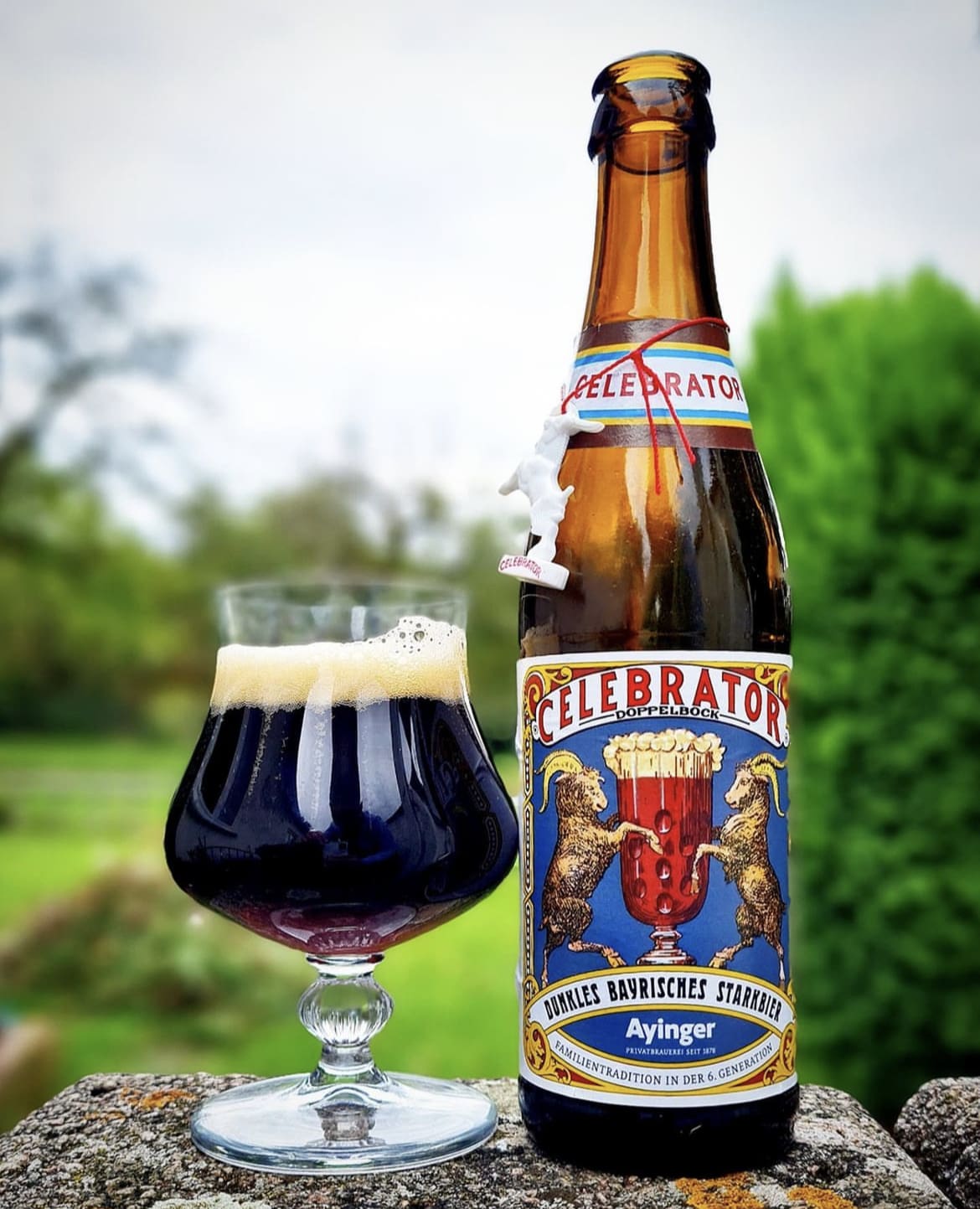
9. Radeberger Pilsner
Flavor Profile:
Radeberger Pilsner offers a clean, refreshing taste with herbal and floral notes, finishing with a subtle bitterness. It’s an easy-drinking beer that showcases the refined simplicity of a classic German pilsner.
What Makes It Special:
Brewed in Saxony, Radeberger holds the distinction of being the official beer of the German Bundestag (parliament) since 1990. Its association with Germany’s political heart underscores its status as a beer of prestige.
Cost:
- Supermarkets: €0.80-1.00 per bottle
- Bars: €3-4 per serving
Radeberger was one of the first German beers to be brewed exclusively in the pilsner style, setting a trend that many breweries followed.
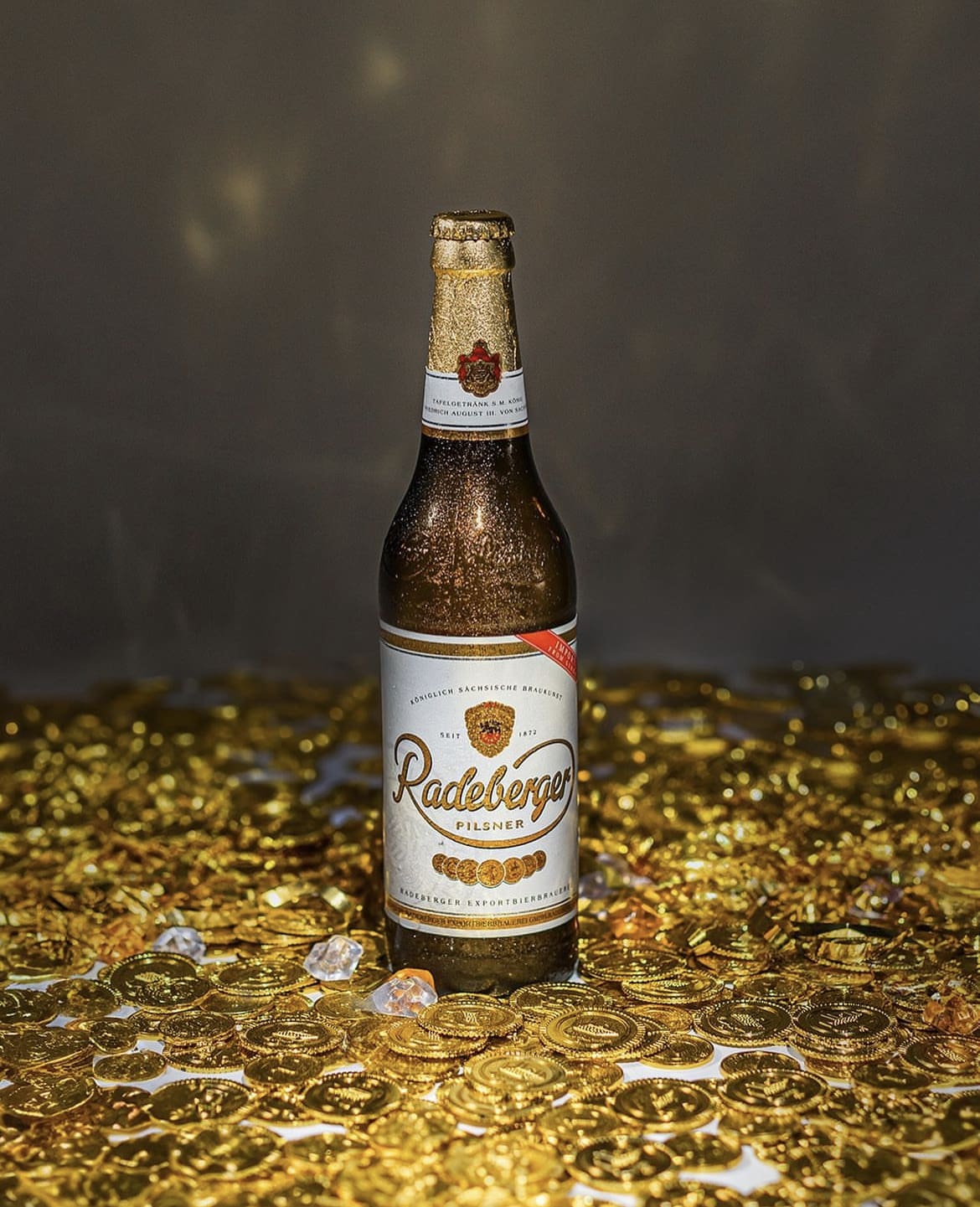
10. Schneider Weisse Tap 7 Mein Original
Flavor Profile:
Schneider Weisse Tap 7 Mein Original is a full-bodied wheat beer with complex flavors of banana, clove, and nutmeg. Its unfiltered nature gives it a cloudy appearance and a rich, creamy texture that’s a hallmark of traditional Bavarian wheat beers.
What Makes It Special:
Schneider Weisse is one of the few breweries that still adheres to the original Reinheitsgebot recipe from 1516. This dedication to tradition has made Tap 7 a favorite among purists who crave an authentic wheat beer experience.
Cost:
- Supermarkets: €1.00-1.20 per bottle
- Bars: €3.50-5 per serving
Schneider Weisse was founded in 1872 when King Ludwig II granted Georg Schneider the exclusive right to brew wheat beer, a privilege previously reserved for Bavarian royalty.
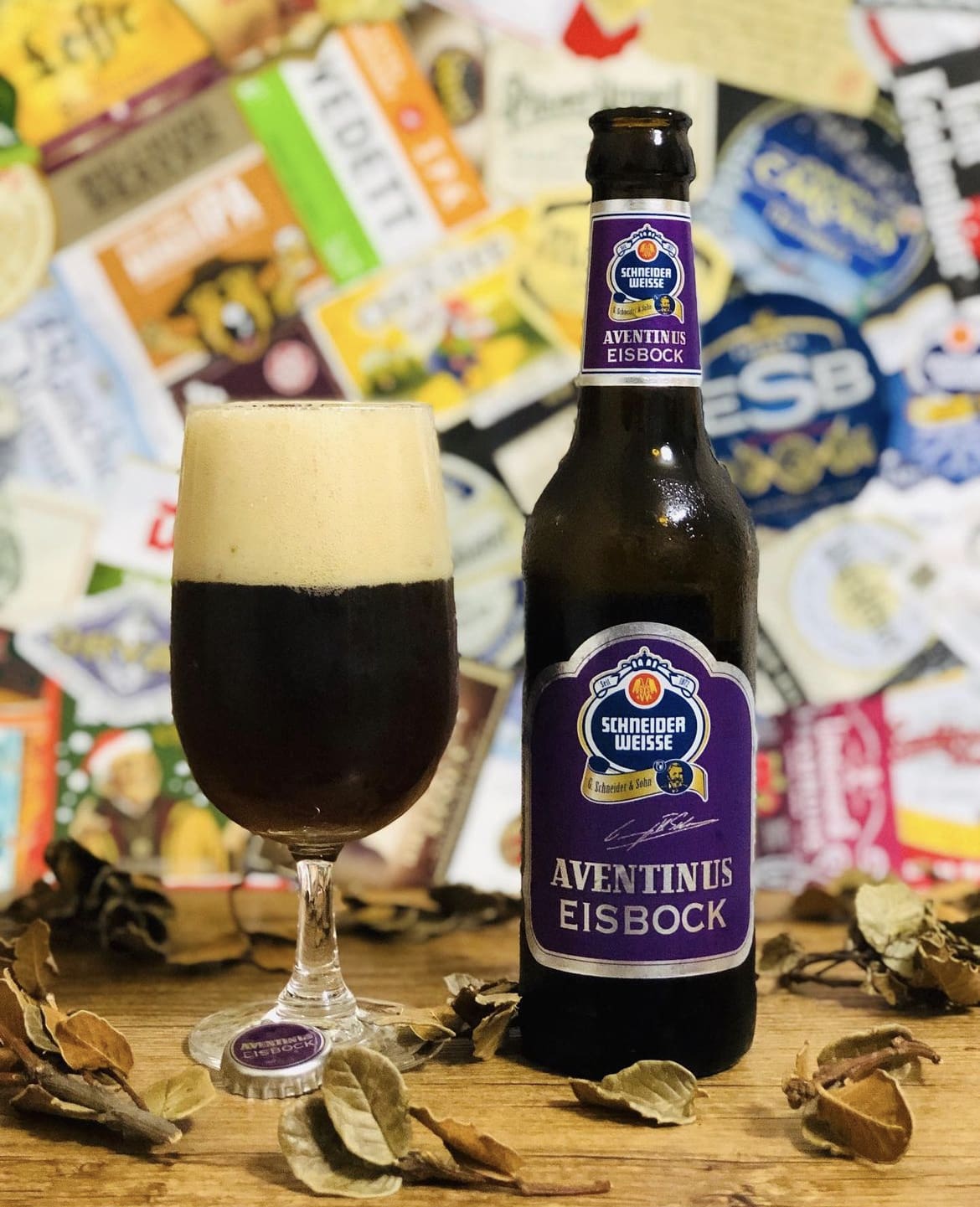
Tips for Enjoying Germany’s Best Beers
- Go Local: Explore regional specialties when visiting. Each area of Germany has unique beer styles that reflect local traditions and flavors.
- Visit a Beer Garden: Experience the communal atmosphere of a Bavarian beer garden, where laughter, conversation, and clinking steins set the mood.
- Pair With Food: German beers pair beautifully with traditional dishes like pretzels, bratwurst, and schnitzel. Don’t miss the chance to enhance your tasting experience.
- Respect the Beer Culture: Germans take their beer seriously. Serving styles, glassware, and traditions like the Purity Law are integral parts of the experience.
In the words of Johann Wolfgang von Goethe, “Life is too short to drink bad beer.” Germany’s brewers seem to have taken this sentiment to heart, offering beers that are as rich in flavor as they are in history.
The best beers in Germany are more than just drinks—they’re an invitation to immerse yourself in a culture that celebrates quality, tradition, and the simple joy of sharing a great brew.
